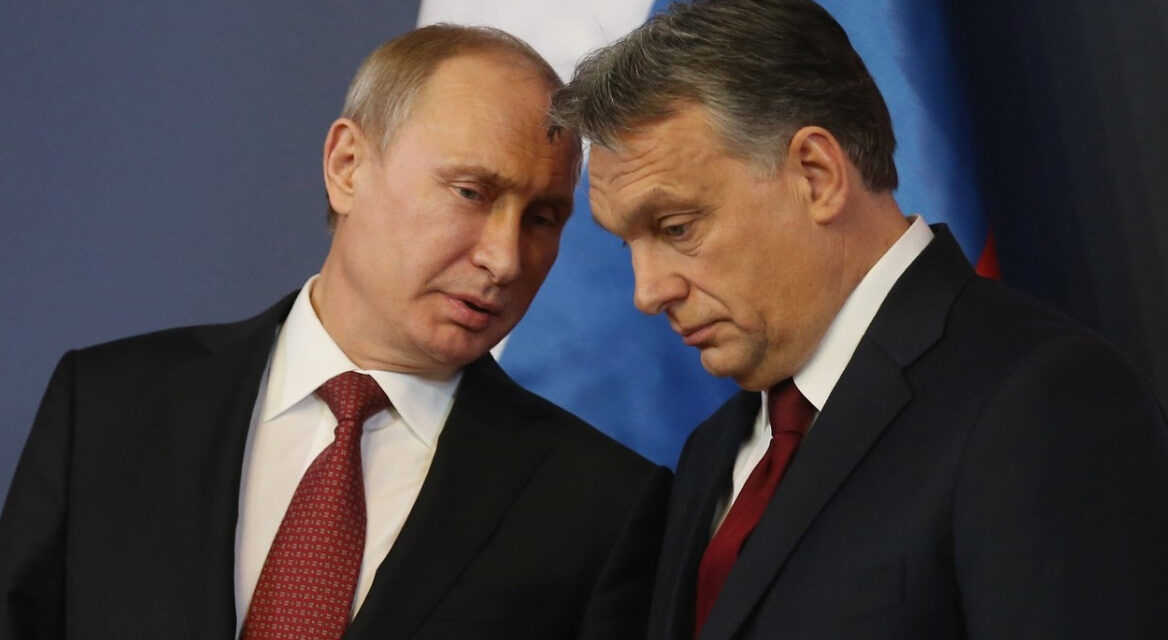We are very fortunate that Deutsche Welle, this German public service medium, gives us, Hungarians, a special place. We need it very much, because without them free speech would not reach the Hungarians, we would not be able to navigate the labyrinths of democracy. I don't know how much the educational broadcast intended for us, the salary of the ten-person crew, and the production costs will burden the wallets of German taxpayers. In addition, Deutsche Welle's Hungarian editorial office not only selects content from the German public media, but also tries to provide the German public with information about the illiberal conditions in Hungary.
Now, for example, the investigative journalist Szabolcs Panyi's fact-finding work has been included in a bouquet by his Hungarian colleague, Zsolt Bogár, who works at Deutsche Welle, this was published on their online interface. I think not only in German, but translated into the languages of all thirty-one countries where Deutsche Welle is trying to convey the true word. This German medium wants to be a kind of Free Europe known from the Cold War, it informs and disrupts in its own way in the target countries, in the spirit of today's idea of democracy in the Western world.
Szabolcs Panyi probably does not need to be introduced, he is the one who was one of the protagonists of the Pegasus scandal in Hungary a year and a half ago. The spy software developed in Israel was used by secret services in many places around the world to monitor phone data, and someone leaked the list of those monitored. National security risk is interpreted in different ways by different countries. In Germany, for example, opposition politicians, their sympathizers, journalists, and civilians are monitored by the Office for the Protection of the Constitution, which is considered legal by everyone except those involved. The names of four Hungarian journalists were also on the Pegasus list, and they and their political supporters immediately saw it as a law enforcement measure by the Hungarian state.
Well, Szabolcs Panyi did not conduct a wide-ranging fact-finding about migration, Pegasus, but about Russian influence in Hungary. Under the title "Hungary is Russia's spy center in the European Union", the article of the Hungarian colleague was published in the virtual columns of Deutsche Welle, stating all the "information" brought together by Panyi as facts. This is a very important article in a country where Putin's Russia is considered to be solely responsible for the Russian-Ukrainian war, where the name "Putin" hisses out of the mouths of reporters and politicians full of hate, where they want to continue the war until he is physically destroyed. In this context, Hungary, which is pushing for peace, also becomes an enemy. Everyone who sees even a little bit more saneness in the crazy world is considered the enemy, Putin's spy, agent, the European community, the mourner of solidarity.
It must be proven that this is so. This would be the job of the media, but instead of information, today we live in a world of disinformation, the media at the service of politics manipulates and changes consciousness. There are thousands of manipulations going on, there is not a day that goes by that foreign newspapers do not deal with the Hungarian (reprehensible) separate travel policy on the front page. However, Deutsche Welle goes far beyond even them.
Let's return to the title, let's have a taste of what it means, what serious accusations it makes against Hungary. Then let's look at the facts revealed by Panyi!
At the end of November 2022, the Ukrainian special forces arrested a suspected Russian agent at one of the Hungarian border crossings. The man wanted to smuggle sensitive information about the bases, weapons and logistics of the Ukrainian army. He should have been relieved of the data carrier hidden in his sensitive anus at the Russian embassy in Budapest. This is where the Russian spy center is located, as the agents usually disguise themselves as diplomats. They can spy with ease because accredited diplomats enjoy diplomatic immunity.
This exemption applies, for example, to Russian employees of the International Investment Bank (IIB). The bank was founded in Soviet times and moved its headquarters to Budapest three years ago. The Hungarian opposition immediately guessed that the Orbán government was supporting the expansion of the KGB network with this step. Moreover, despite the sanctions, the Hungarians tolerate this international bank, even though well-meaning European countries are leaving it one by one. According to Panyi, KGB connections are also indicated by the fact that the head of the bank, Nikolai Kosow, comes from a spy family; his father was once a resident of the KGB in Budapest, his mother was called "one of the most important spies of the 20th century" by the Russian news agency TASSSZ. Nice pedigree, I can say, although it is difficult to surpass the pedigree of shadow Prime Minister Dobrev. Panyi could write about it one day, let half the world see through the German waves who they are warming on their bosoms.
Panyi believes he knows that the IT network of the Hungarian Ministry of Foreign Affairs is contaminated and exposed to constant Russian hacker attacks. Only we here, except the detective, don't know that. The Western allies, on the other hand, know, so they don't even share secret information with Hungary. There is a lot of distrust towards us. This is only enhanced by the distribution of settlement bonds to influential Russians for money, a system called the golden visa by Deutsche Welle. Of course, if we were to call it by its German name, it would turn out that there is such a system there as well, there are people who buy the right to settle with good money, and there are people with intellectual or political capital.
In addition, when we hand out dual citizenship to Hungarians across the border for free, with naturalization we also give Russian agents exploiting the loophole the opportunity to enter the territory of the Union without a bone. I have not come across such an approach to dual citizenship, so it is good to read an investigative journalist. Panyi or Deutsche Welle could also deal with German naturalization, since the German world passport is being distributed like wildfire, and applicants (migrants, asylum seekers), whose identities we know very little about, will be able to travel as they please in Europe without borders. Or they could write about the European socialists who promised the Qataris visa exemption for millions in bribes.
I could list Panyi's evidence, starting with the so-called "conservative right-wing" KGB in Jobbik spying on the Russians, up to how Moscow made the current Hungarian government blackmailable, and how Viktor Orbán, under the pressure of Russian agents, drove a wedge into the wheel of EU sanctions. All this knowledge was obtained by Panyi and his team through thorough investigation. Then all that was left was to assemble the selected elements in this puzzle game called Russian spy network in Hungary according to the client's wishes.
The topic of the KGB network has not yet been included in the anti-Hungarian toolkit of domestic and European neo-Marxists, since it is actually their relationship system. Panyi inadvertently said: "members of the political and economic elite often studied in Russia and married Russians or Russian women. This also strengthened the Russian influence in Hungary", he writes. Who were the members of this political and economic elite educated in Russia? I'd check out those mixed marriages too!
Author: historian Irén Rab
Source: Magyar Hírlap
Photo: MTI












